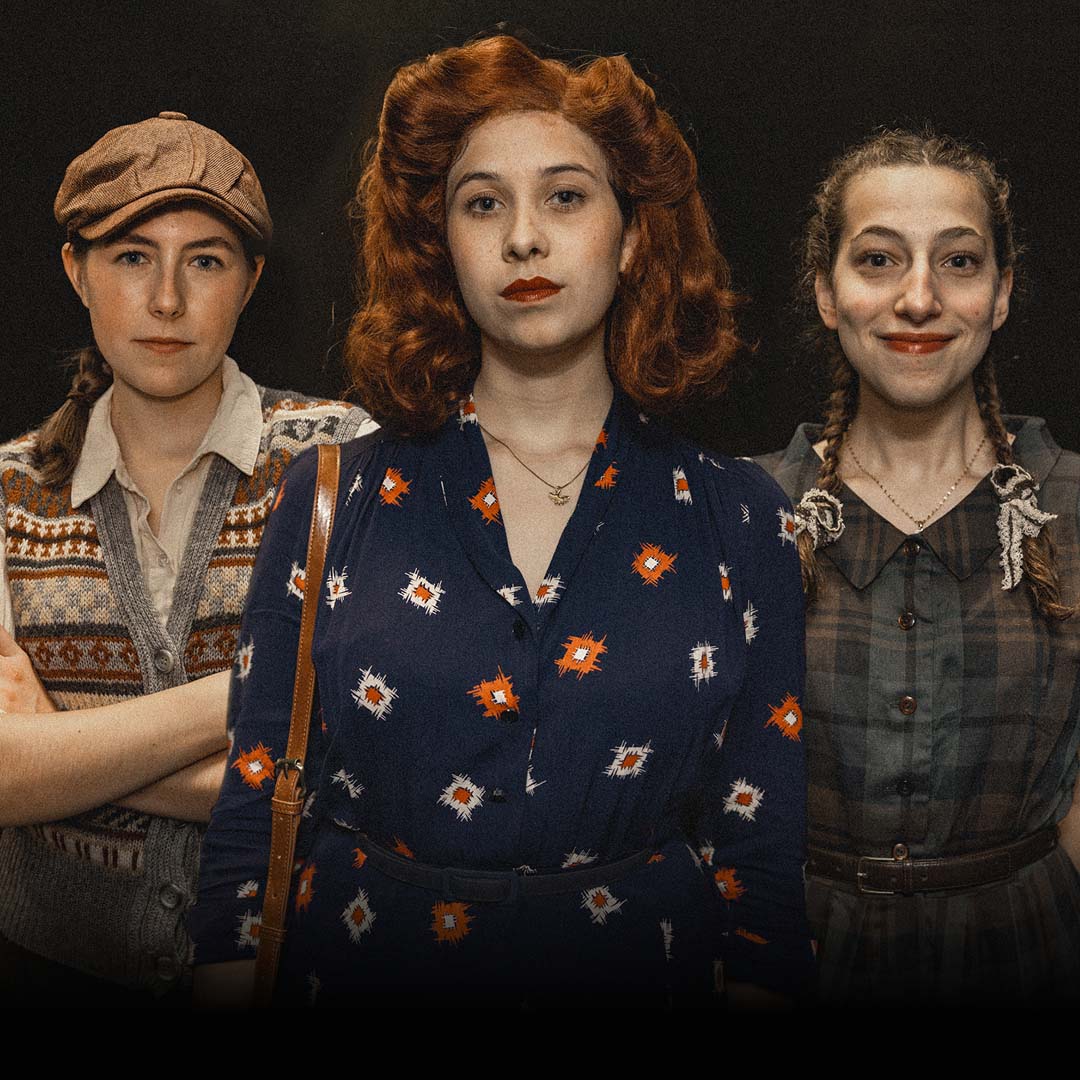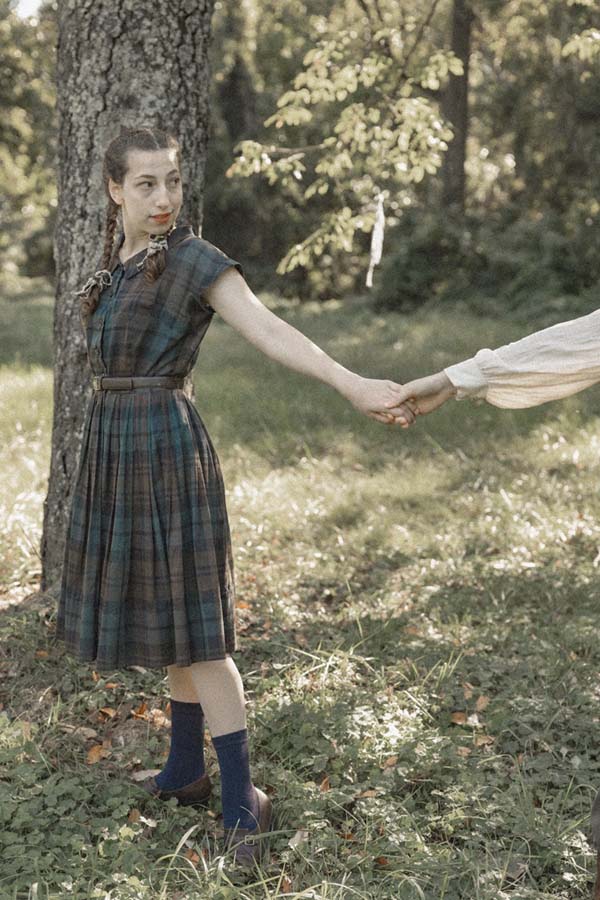“Disarming Girls:” AU Debuts Powerful Play About Women's Courage in World War II Resistance
 Lucille Rieke, Maddy Cooper, and Mira Gross-Keck as Truus, Hannie, and Freddie. Photo: Ethan Kauffman.
Lucille Rieke, Maddy Cooper, and Mira Gross-Keck as Truus, Hannie, and Freddie. Photo: Ethan Kauffman.
Disarming Girls, a new play making its debut on American University’s Greenberg Theatre stage, tells the extraordinary true story of Hannie Schaft, Truus Oversteegen, and Freddie Oversteegen—three young women who became unexpected heroes of the Dutch resistance in the Nazi-occupied Netherlands. As they navigate the harsh realities of 1941, their conviction and cunning challenge traditional roles and redefine what it means to fight for justice.
In August, AU students joined the play’s co-authors, Sarah Caroline Billings and Kallen Prosterman, for a workshop that helped shape the production’s staging and script. That collaboration comes full circle this fall, when every member of the Class of 2029 will attend the performance as part of their AU Core curriculum.
The show runs from October 16-26. Tickets are free for AU students, $10 for children (under 18), seniors (over 55), AU alumni, staff, and faculty, and $15 for the general public.
The play’s writers are friends and theater professionals based in New York City. While both come from performance backgrounds, their creative interests have expanded into playwrighting. After listening to a podcast about Hannie, Truus, and Freddie, Sarah Caroline shared the story with Kallen and together, the writers were inspired to turn their story into a theatrical production. “We’re both drawn to putting women’s stories at the forefront,” says Prosterman. After experiencing so much theater that explored women’s experiences only through the lens of romance, the writers chose this story because it focuses on the trio's bravery and complexity as women and resistance fighters. “We were motivated to write roles we wanted to play as actors,” says Billings. “There are so few great roles for young women that really show a journey—it’s a hole that needs to be filled.”

Left: Photo by Ethan Kauffman
In adapting the story for the stage, the writers focused on creating a script that could be staged abstractly, allowing for flexibility across different performance venues. “Theater is the most collaborative art form, because everyone can influence the story,” says Billings. Additionally, this flexibility allows actors to inhabit their characters on a personal level. During the August workshop at AU with the cast and creative team, the writers revised aspects of the play in response to group discussion. “We’re working with a talented and intelligent team at AU, so we have to think about how they understood the play and respond to that,” says Prosterman.
The play has been chosen as part of AU’s Core curriculum this year, which means that 1,700 first-year students will attend the performance. School of Education Professor Elizabeth A. Worden, Faculty Co-Lead for the Encounters First Year Program, noted that the play is ideal for the freshman experience because it offers many layers of storytelling and a wide range of discussion topics. “I expect we'll have a range of conversations from the role of women in WWII resistance movements to how the play is staged to 'what would you do if Nazis occupied your city?'” says Worden. “It will also be fun to engage students outside of the classroom—sharing experiences with one’s peers and professors outside of academics is part of what makes college memorable and meaningful."
In choosing to bring Disarming Girls to AU, Prosterman and Billings were aware that its actors and student audiences are around the same age of Hannie, Freddie, and Truus were during their fight against the Nazis. The writers hope that their young audiences see themselves in the story’s heroines. “Ultimately, I hope they recognize that we all can have a role in resistance,” says Prosterman. “We know that history repeats itself—so what side do we want to be on?”